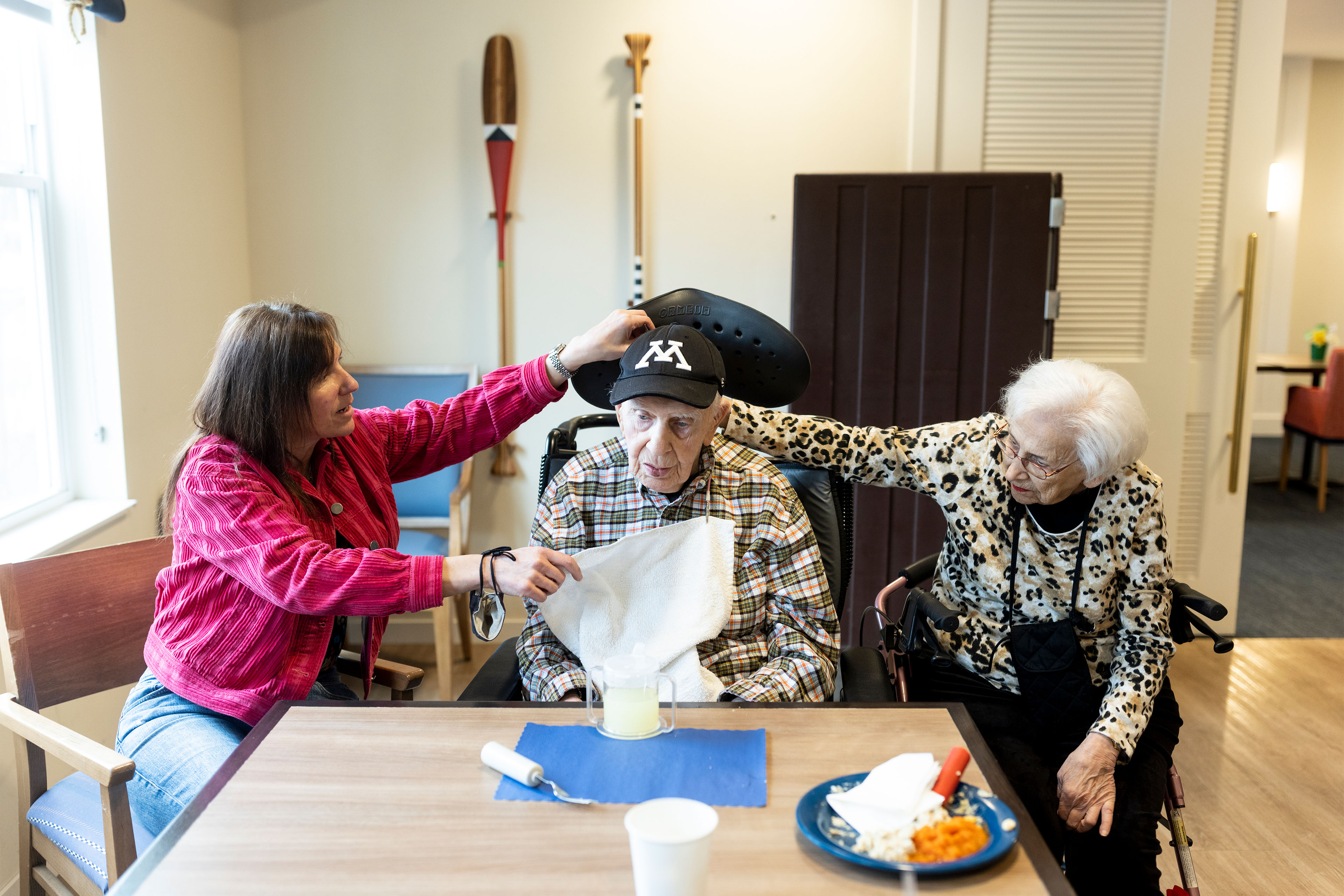Compare Memory Care options for families seeking compassionate support.
Compare Memory Care options for families seeking compassionate support.
Blog Article
Helped Living: a Compassionate Environment for Seniors With Memory Obstacles
Aided living centers progressively act as compassionate environments customized to the special demands of elders coming to grips with memory difficulties. By offering personalized treatment and structured routines, these areas not just improve cognitive function yet also foster emotional links, decreasing isolation amongst homeowners. Specialized techniques, such as music treatment and memory techniques, are used by skilled team to promote deeper communication. The performance of these treatments typically pivots on the participation of family members in the care procedure, triggering a more detailed assessment of just how this collective initiative influences end results for both locals and enjoyed ones.
Understanding Memory Difficulties
Recognizing memory challenges is vital for giving effective care to senior citizens encountering cognitive decline. Memory disabilities, which can show up as lapse of memory, confusion, or difficulty recalling recent occasions, are usually symptoms of conditions such as Alzheimer's disease or other types of mental deterioration. These challenges can considerably affect a senior's capability to do day-to-day jobs, keep social partnerships, and manage personal safety.
Recognizing the various stages of cognitive decline is important for caregivers and health care experts. Early-stage memory loss may include moderate lapse of memory, while mid-stage decrease can bring about extra obvious disorientation and confusion. In late-stage dementia, people might shed the capacity to interact successfully, needing detailed support and understanding from caregivers.
This necessitates a compassionate technique to care that prioritizes the psychological wellness of the individual. Inevitably, a deep understanding of these difficulties is basic to providing compassionate and reliable care for elders encountering cognitive decrease.
Advantages of Assisted Living
Helped living offers various benefits for senior citizens with memory challenges, supplying a supportive setting that fosters independence while making sure security and care. Among the primary advantages is the round-the-clock guidance and support readily available, which helps mitigate dangers connected with memory-related concerns. Memory Care. This continuous assistance permits elders to take part in day-to-day activities without the concern of crashes or complication
Additionally, assisted living centers frequently give structured routines that can boost cognitive function and stability. These regimens aid locals really feel even more safe and secure and lower stress and anxiety, as they understand what to anticipate each day. Social interaction is one more substantial benefit, as these atmospheres motivate links among homeowners, advertising emotional wellness and minimizing sensations of seclusion.
Moreover, helped living personnel are educated to identify the unique needs of elders with memory challenges, enabling for customized treatment strategies that resolve individual preferences and requirements. This tailored method not only improves the high quality of care however additionally encourages elders to keep a feeling of freedom. On the whole, assisted living works as a compassionate solution, balancing the need for support with the desire for freedom in the lives of senior citizens encountering memory obstacles.
Specialized Treatment Approaches
Implementing specialized care approaches is essential for properly supporting seniors with memory sites obstacles. One essential approach is person-centered treatment, which highlights the importance of recognizing each citizen's life history, preferences, and worths.
One more critical approach includes making use of cognitive excitement therapies. Tasks designed to boost memory recall, encourage social communication, and promote imagination can dramatically affect homeowners' general well-being. Techniques such as memory therapy leverage personal memories to trigger conversation and connection, while songs therapy can stimulate feelings and memories, providing convenience.

Creating a Supportive Community
(Dementia Care Charlotte)An encouraging area plays a vital duty in improving the lives of senior citizens with memory challenges. Such a neighborhood promotes a setting of understanding, concern, and motivation, which is vital for individuals encountering cognitive troubles. By developing a network of support, aided living facilities can considerably improve the lifestyle for residents.
Central to a supportive area is the visibility of qualified staff who are sensitive to the distinct requirements of senior citizens with memory disabilities. These experts not just offer important treatment yet also involve locals in purposeful activities that stimulate cognitive feature and advertise social interaction. Programs that motivate engagement in team workouts, arts and crafts, or memory video games can improve both physical and mental wellness.
Furthermore, an encouraging neighborhood advertises strong connections among citizens. Encouraging friendships and peer support aids to minimize feelings of seclusion and cultivates a sense of belonging. Routine gatherings and communal dining experiences can even more enhance these bonds, creating an ambience where elders feel valued and understood.
Involving Families in Treatment
Involving family members in the care process is necessary for supplying comprehensive support to elders with memory challenges. Relative frequently work as vital advocates, providing insights into the person's choices, history, and routines that can enhance personalized care. By including them in conversations and treatment preparation, assisted living centers can produce a much more holistic strategy that reverberates with the resident's needs.

Encouraging households to join care not only enhances the wellness of the elderly but also provides emotional assistance to household participants. Involving families in care grows a sense of community and belonging, guaranteeing that elders feel connected to their enjoyed ones. Eventually, a collective approach to care improves the lives of both residents and their families, producing a compassionate and supportive setting that advertises self-respect and respect.
Conclusion
In final thought, helped living works as an important source for seniors experiencing memory difficulties, supplying customized treatment customized to private requirements. The structured regimens and interesting activities promote cognitive feature and psychological well-being, fostering a sense of belonging. Specialized care techniques, such as memory and songs therapy, enhance communication and connection. By including households in the care procedure, assisted living creates a comprehensive support network, inevitably enhancing the lives of citizens and their liked ones.
Report this page